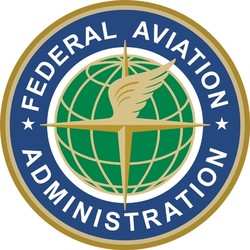The FAA Has Issued A Review Of The Proposed Third Class Medical Reform Guidelines Passed By Congress
EAA has published information that indicates the new third class medical reform regulations will be introduced by the FAA sometime in January. Dr. James Fraser, FAA Federal Air Surgeon, has provided a review of the guidelines passed by Congress. Here’s a slightly abridged version of that review.

WHEN DOES IT START?
The new law gives the FAA six months to write the rule, and a further six months before a “non-enforcement” period begins. What that means is that you will have to wait until the FAA’s new rules implementing the legislation become effective before you can fly under this relief. In the unlikely event that the FAA is unable to issue rules by July 15, 2017, the FAA would be precluded from taking enforcement action against airmen who are complying with the new process as outlined in the law. But the FAA has confidence it will be able to publish final regulations in the Federal Register long before that date.
WHAT DO I NEED?
If you want to fly under the Act’s relief, here are some of the basic requirements. You must first have a current and valid state driver’s license. You must also hold, or have held, any FAA medical certificate in the ten year period counted from July 15, 2016. This means that if your medical certificate was valid at any point after July 15, 2006, you are covered. If you’ve never had a medical certificate, or your certificate lapsed before that date, you will have to get a one-time medical certificate. If your most recent medical certificate has been suspended, revoked, withdrawn, or denied, you will also need to get a new medical certificate before you can take advantage of the reforms. If you don’t know the date of your last medical exam, you can look it up in our airmen database.
Certain conditions will still require a one-time special issuance medical certificate. Broadly, these include certain cardiovascular, neurological, and mental health issues. The final rule will address the specifics.
Once you meet these requirements, you will need to meet some other provisions. The details are still being worked out, but as an example, pilots will be required to complete an online aeromedical training course every two years and keep the certificate of completion in their logbooks. They’ll also need to make some attestations to the FAA about their health, and consent to the same National Drivers Registry when they apply for a medical certificate.
Additionally, pilots will be required to have a physical exam from a state-licensed physician every four years. That physician will use an approved checklist and form to certify that you do not have any disqualifying conditions and are not taking any medications that would make you unsafe to fly. You must carry a form in your logbook documenting the exam.
WHAT CAN I DO ONCE THE RULE IS ENACTED?
The law allows private pilots to do most of the flying they already do. You can fly under VFR or IFR at altitudes below 18,000 feet MSL and at airspeeds below 250 knots. You can use any aircraft that has a maximum takeoff weight of 6,000 pounds (single or multi-engine) and six or fewer seats. Like all pilots, whether you hold a medical or not, you are still required to self-ground when you are not safe to fly.
DOES THIS MEAN THE THIRD CLASS MEDICAL IS GOING AWAY?
No. While medical reform offers a new medical qualification that pilots can elect to use, you can also just get a regular medical certificate the way you always have.
 ANN's Daily Aero-Linx (06.29.25)
ANN's Daily Aero-Linx (06.29.25) ANN's Daily Aero-Term (06.29.25): Gross Navigation Error (GNE)
ANN's Daily Aero-Term (06.29.25): Gross Navigation Error (GNE) Classic Aero-TV: Anticipating Futurespace - Blue Origin Visits Airventure 2017
Classic Aero-TV: Anticipating Futurespace - Blue Origin Visits Airventure 2017 NTSB Final Report: Cirrus SR22
NTSB Final Report: Cirrus SR22 Airborne Affordable Flyers 06.26.25: PA18 Upgrades, Delta Force, Rhinebeck
Airborne Affordable Flyers 06.26.25: PA18 Upgrades, Delta Force, Rhinebeck



